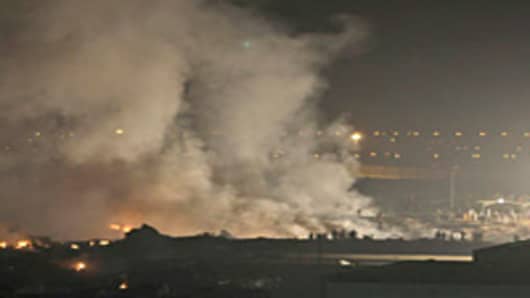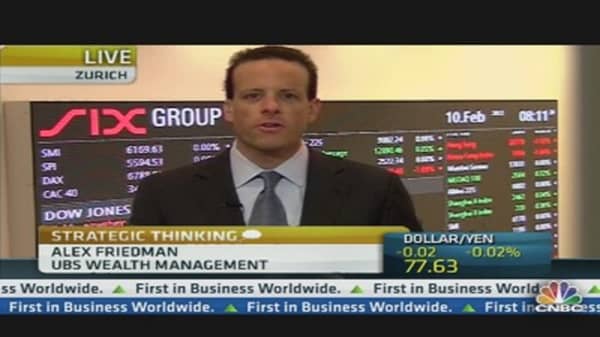The danger of disaster in the financial markets has receded since the start of the year, after additional liquidity injections, one strategist told CNBC Friday.
“Six weeks ago, the situation in financial markets felt like getting on an aeroplane and having the pilot saying: ‘Fasten your seatbelts, have a good flight, but there’s a 20 percent chance we could crash,’” Alex Friedman CIO, UBS Wealth Management, told CNBC.
“You would have got off the plane and got on a bus, for the reason that, if there’s a binary risk that exists, you don’t want to be approaching the risk return dynamic in that way. Today, we are on a plane and the question is what delays there are going to be. There will be a problem but you will get there in one piece,” he said.
European markets have rallied this year, with the FTSE 100,DAX and CAC 40 all up significantly in the first six weeks of the year.
“I think what the European Central Bankhas done is: it’s taken away the immediate fear of an aggressive liquidity squeeze in the banking system, and even to a large extent the concerns of the peripheral funding needs on the sovereign side,” Valentijn van Nieuwenhuijzen, Head of Strategy, ING Investment Management, told CNBC.
There has been a move towards perceived riskier assets as the ECB’s injection of cheap money into the European banking system increased optimism that the euro zone would avert further crisis.
“Whether you’ve missed the rally depends on whether you’re a trader or an investor. If you’re a trader, you may have missed it,” Friedman said.
“If you’re an investor, thinking about six months or more, the question is, have fundamentals changed? We are starting to see systemic liquidity across the board. When there’s broad-based liquidity, assets tend to improve.”
“In Europe, there’s a shift to a dynamic where it’s the ECB and Merkel working together to try to solve the crisis. That’s what’s really changed,” he added.
He said that he is neutral on stocks, but is taking on risk on the credit side, including US high yield and investment grade credit. Within equities, he likes the US, some emerging markets, the UK and Switzerland.





